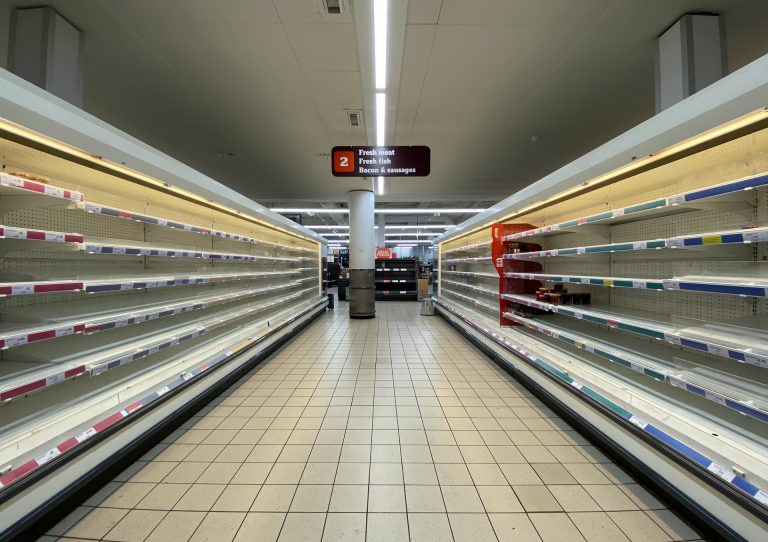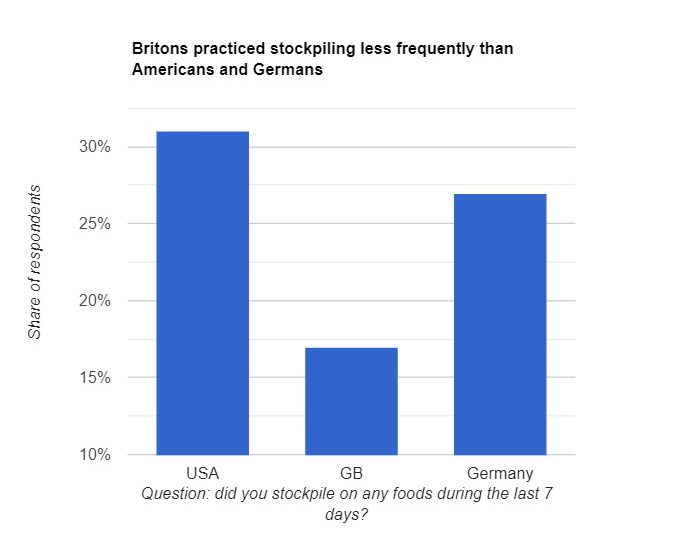
The proportion of people wearing face masks is on the rise in Germany.
Even before the wearing of masks was made compulsory in enclosed spaces in Germany, their use was increasing.
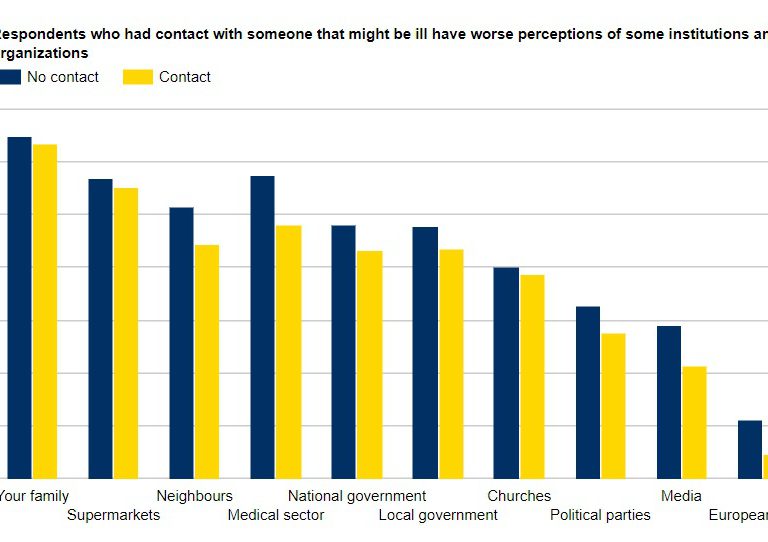
Does exposure to the virus change what we think about people and organizations?
Those who had contact with someone who might have the virus have worse perceptions of the medical sector, their neighbors, and the media than the wider population.

Does exposure to the virus influence behaviors around the disease?
Those who might have been exposed to the disease are more likely to use more measures to stop the spread of the disease.
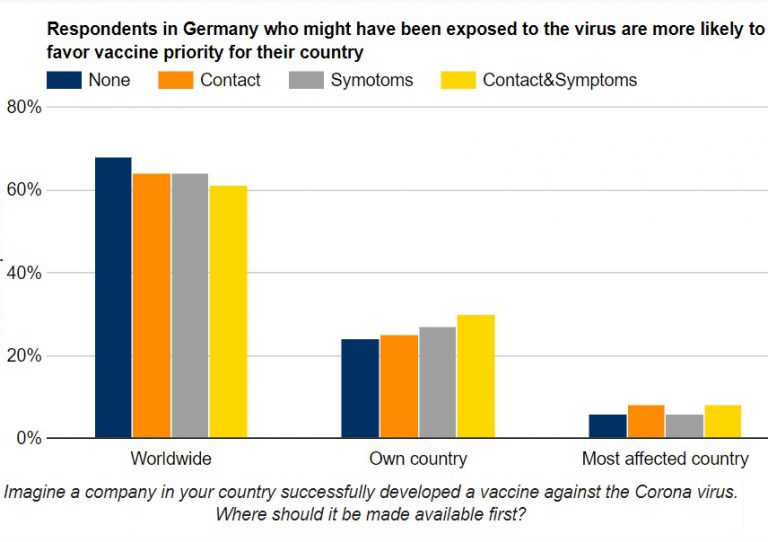
Where should a vaccine be made available first?
Those exposed to the virus are more likely to support priority access to a vaccine in their own country.
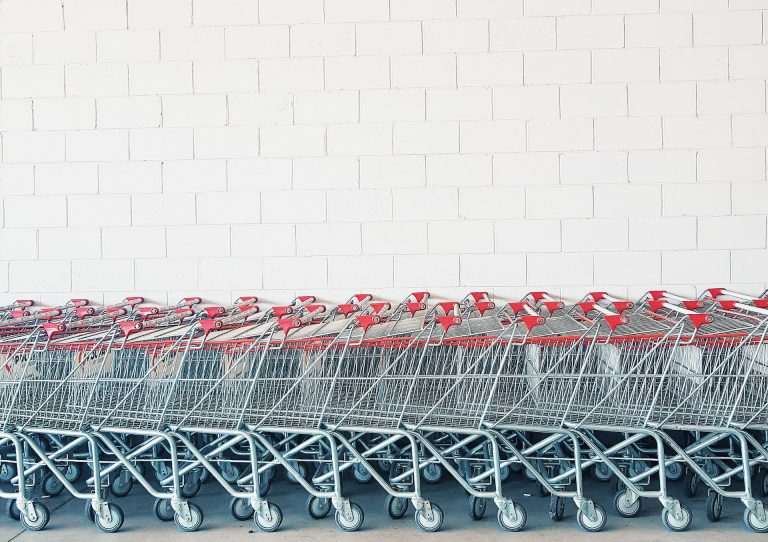
Stockpiling in Germany is on a downward trend
Nearly two in five respondents admitted stockpiling at the start of the survey. That had fallen by more than half by last weekend. Does this, truly, capture a downward trend? Or were supermarket closures because of public holidays at work in the data? Tell us your experiences by answering the survey!
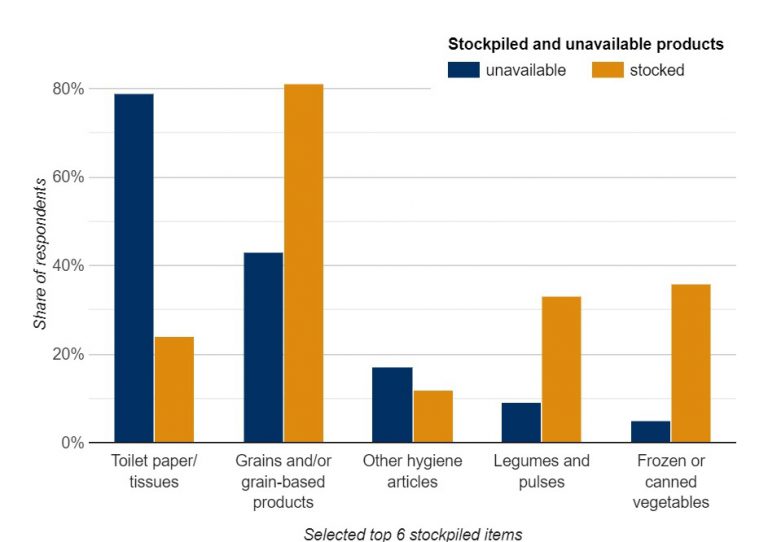
Stockpiled vs unavailable products
People are not stockpiling the goods that are most commonly unavailable.
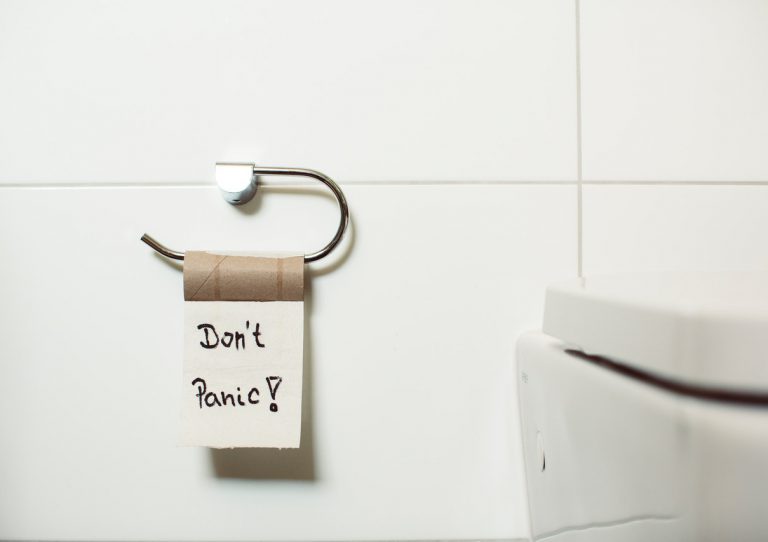
Top five items that were unavailable
The majority of respondents struggled to find toilet paper.
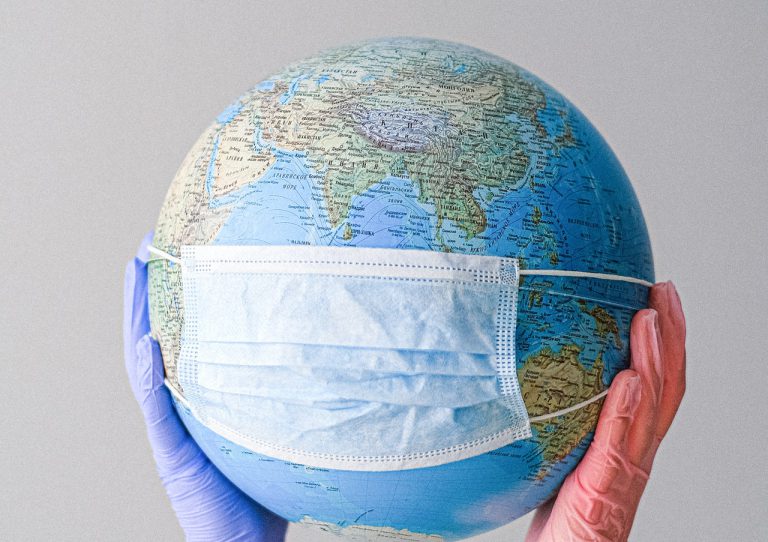
Climate Change or the Coronavirus Crisis?
In Germany, the coronavirus crisis tops climate change as the biggest societal challenge.

